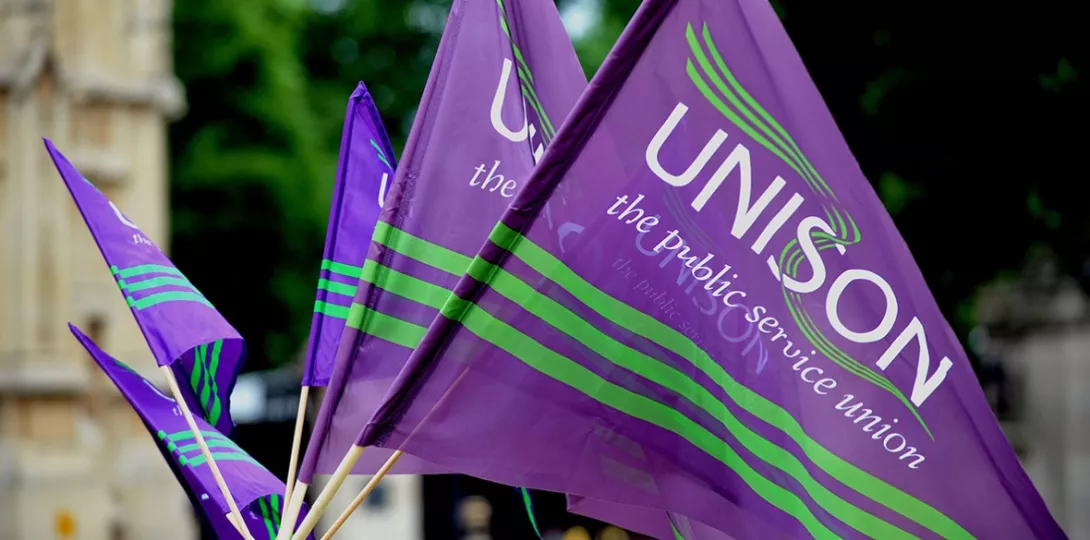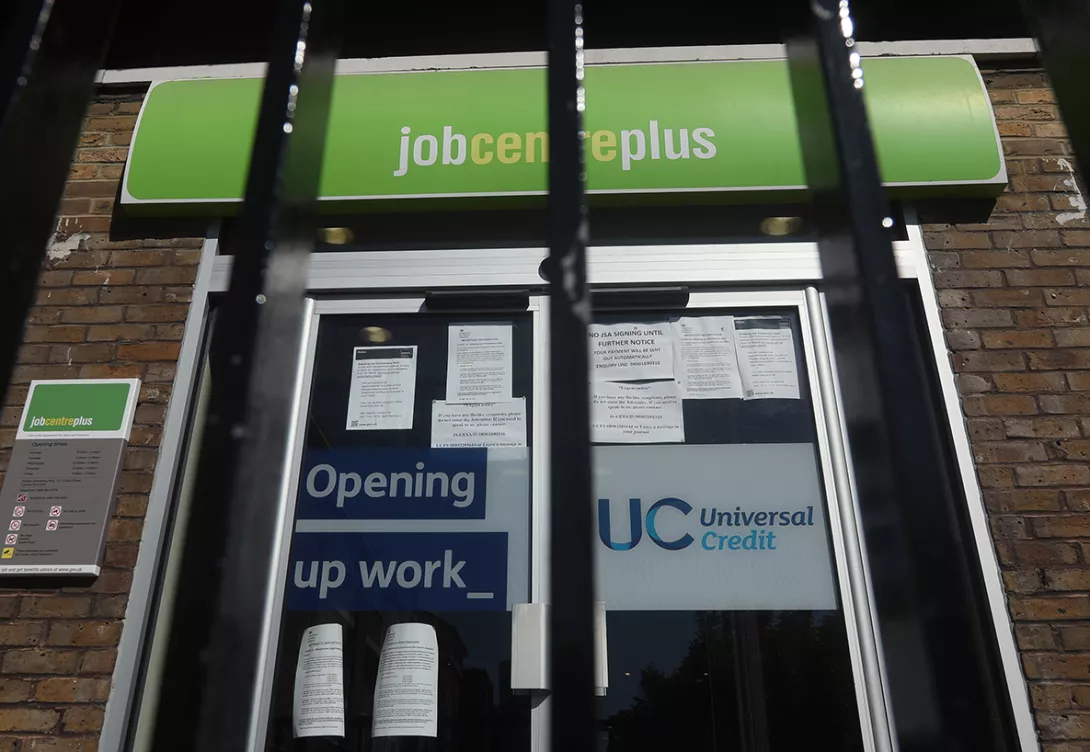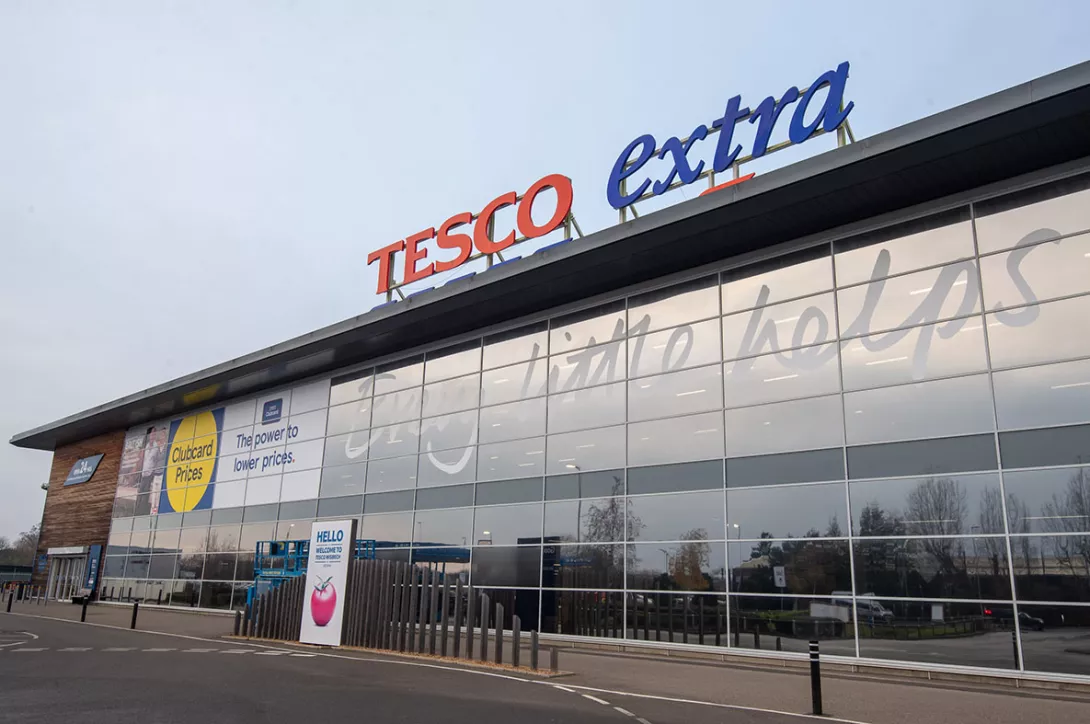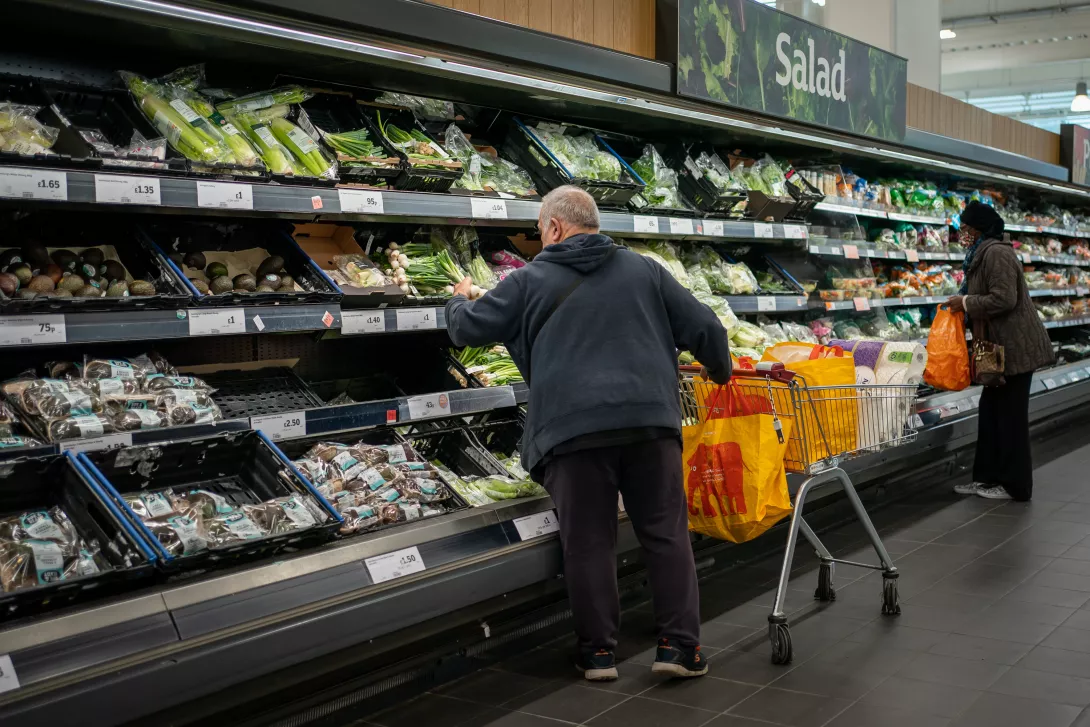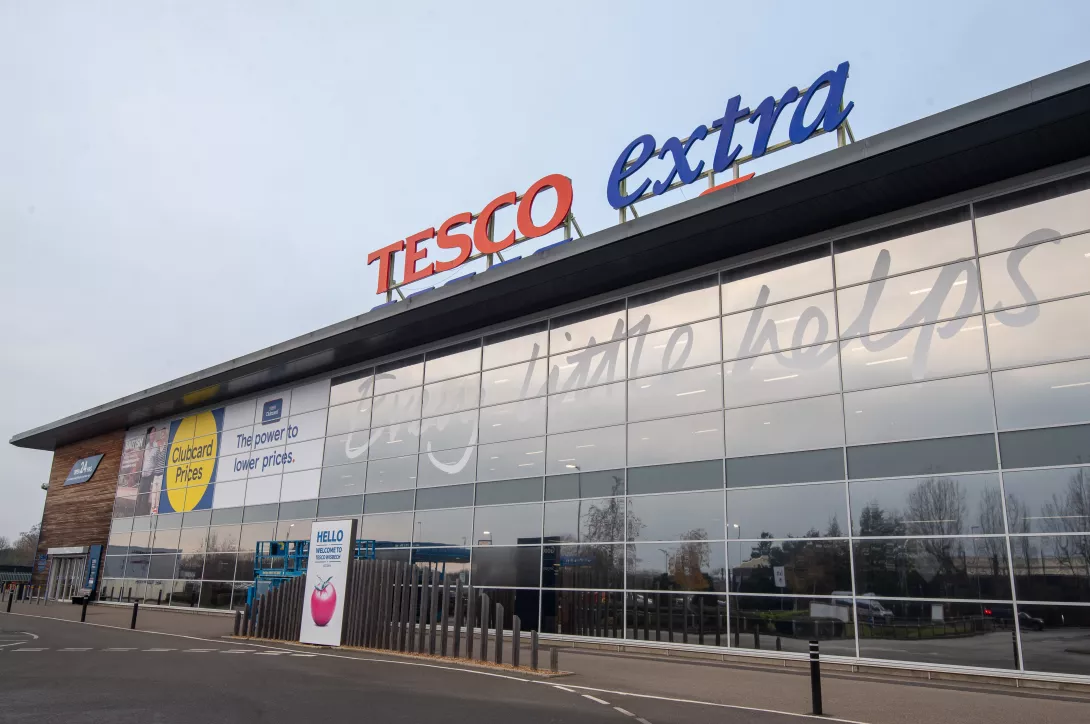
TESCO profits are the latest example of the profiteering gravy train, Unite the Union said today, as figures revealed a 39 per cent year-on-year jump in the number of households failing to pay their energy bills.
The supermarket giant said it is on track for bigger than expected profits of £2.75 billion this year after record sales over the Christmas period.
Unite general secretary Sharon Graham blasted Tesco for “raking in bumper profits on the back of profiteering” as millions struggle with sky-high food prices.
“Corporations like Tesco have done very well out of the cost-of-living crisis — unlike working people, who have had to swallow inflated costs that have lined the pockets of the bosses and investors,” she added.
“The government could easily choose to prevent companies exploiting a national crisis to bank grossly excessive profits. Instead, they simply let the gravy train continue.”
Tesco chief Ken Murphy said he expects food inflation to “continue to moderate” through the rest of the year as energy prices become a tailwind.
But, he added, he still expected to be some inflationary pressure from labour costs in the food supply chain.
He also admitted that commodity prices of potatoes and some meat have not yet reduced, despite overall inflation in the sector slowing significantly.
It came as Marks & Spencer said it started 2024 with a “spring in our step” after sales jumped over Christmas.
Sainsbury’s, Britain’s second-biggest supermarket, also reported a 8.6 per cent rise in grocery sales in the six weeks to January 6.
Meanwhile the Office for National Statistics said that the total direct debit failure rate last month increased by 15 per cent, compared with 12 months ago.
It said this was driven mainly by increases of 39 per cent in electricity and gas and 20 per cent in mortgages, as households continue to pay nearly £600 more per year than before the energy price spike.
The Competition and Markets Authority is reviewing competition in the groceries sector.
In November, it warned that “some branded suppliers have pushed up prices by more than their costs increased,” adding: “Food price inflation continues to be at historically high levels, despite falling to 10.1 per cent in October 2023.”







